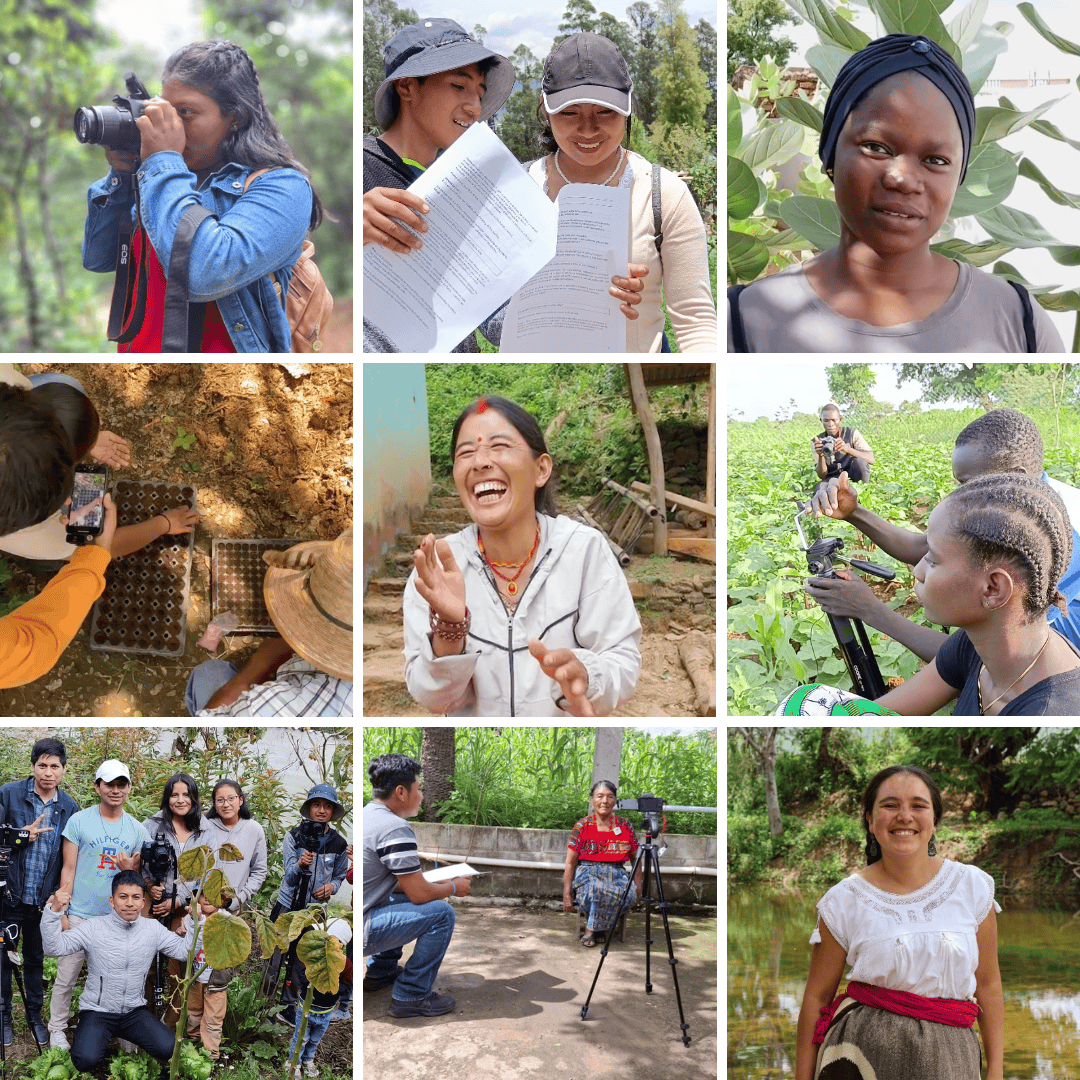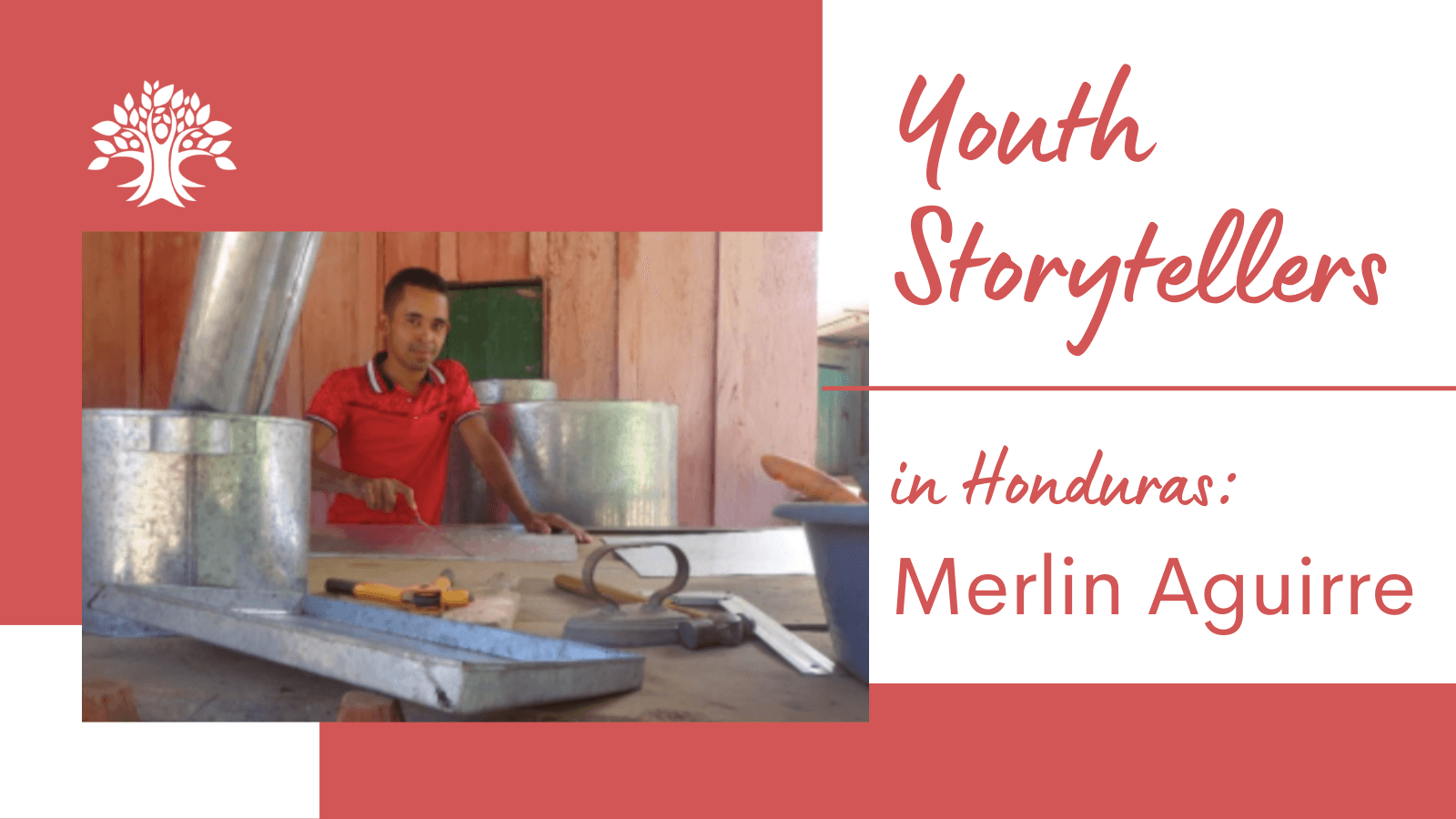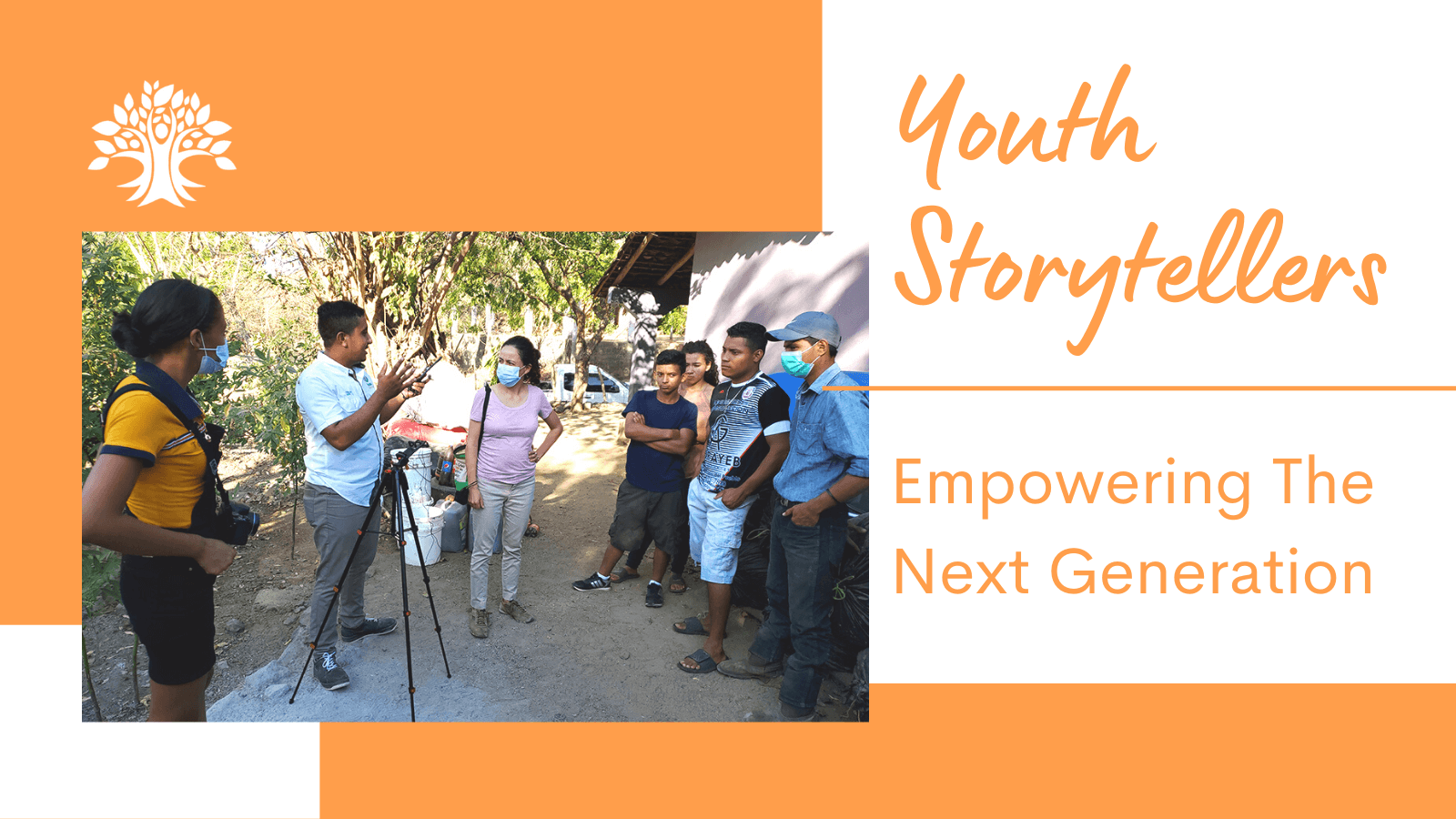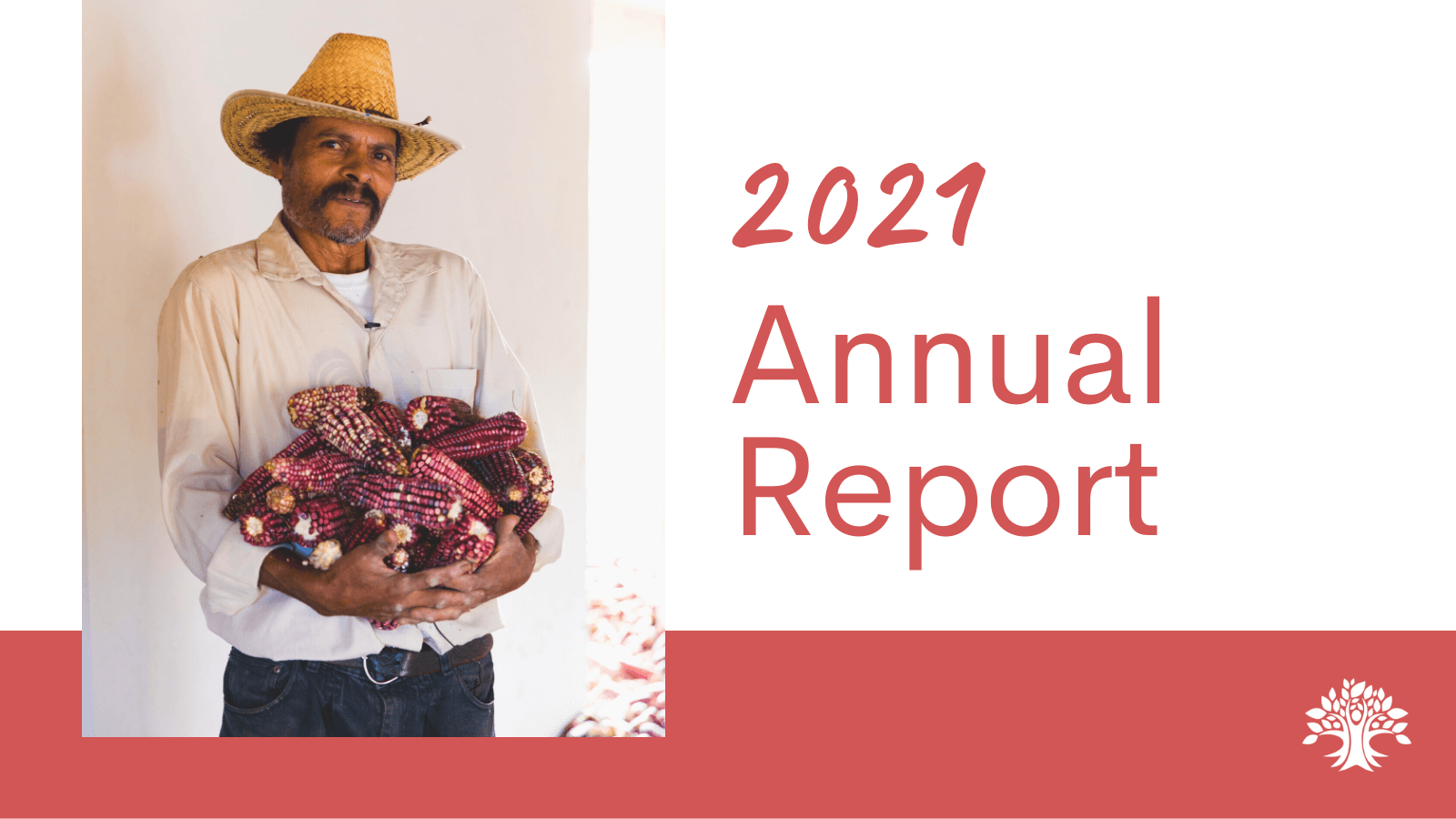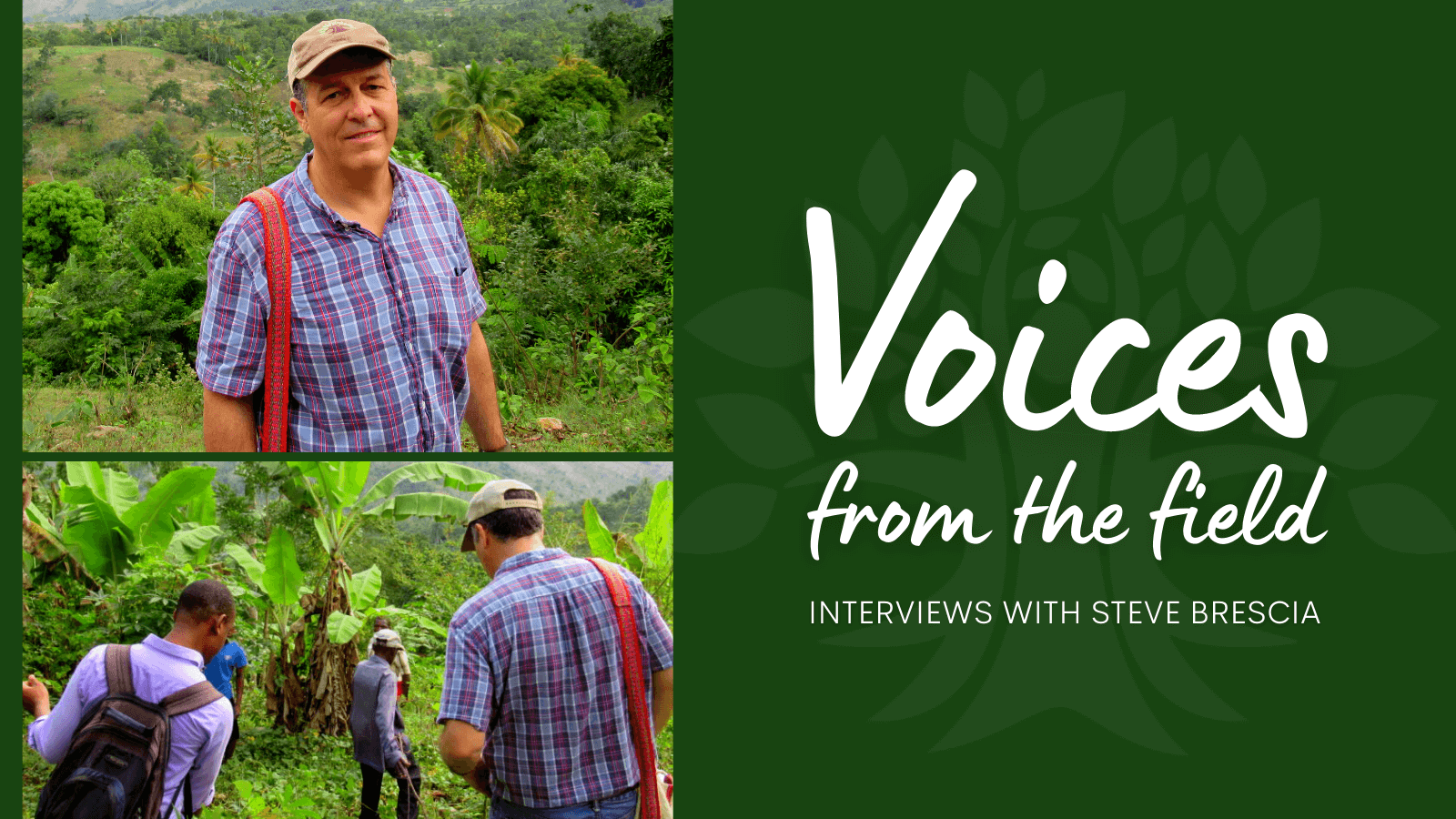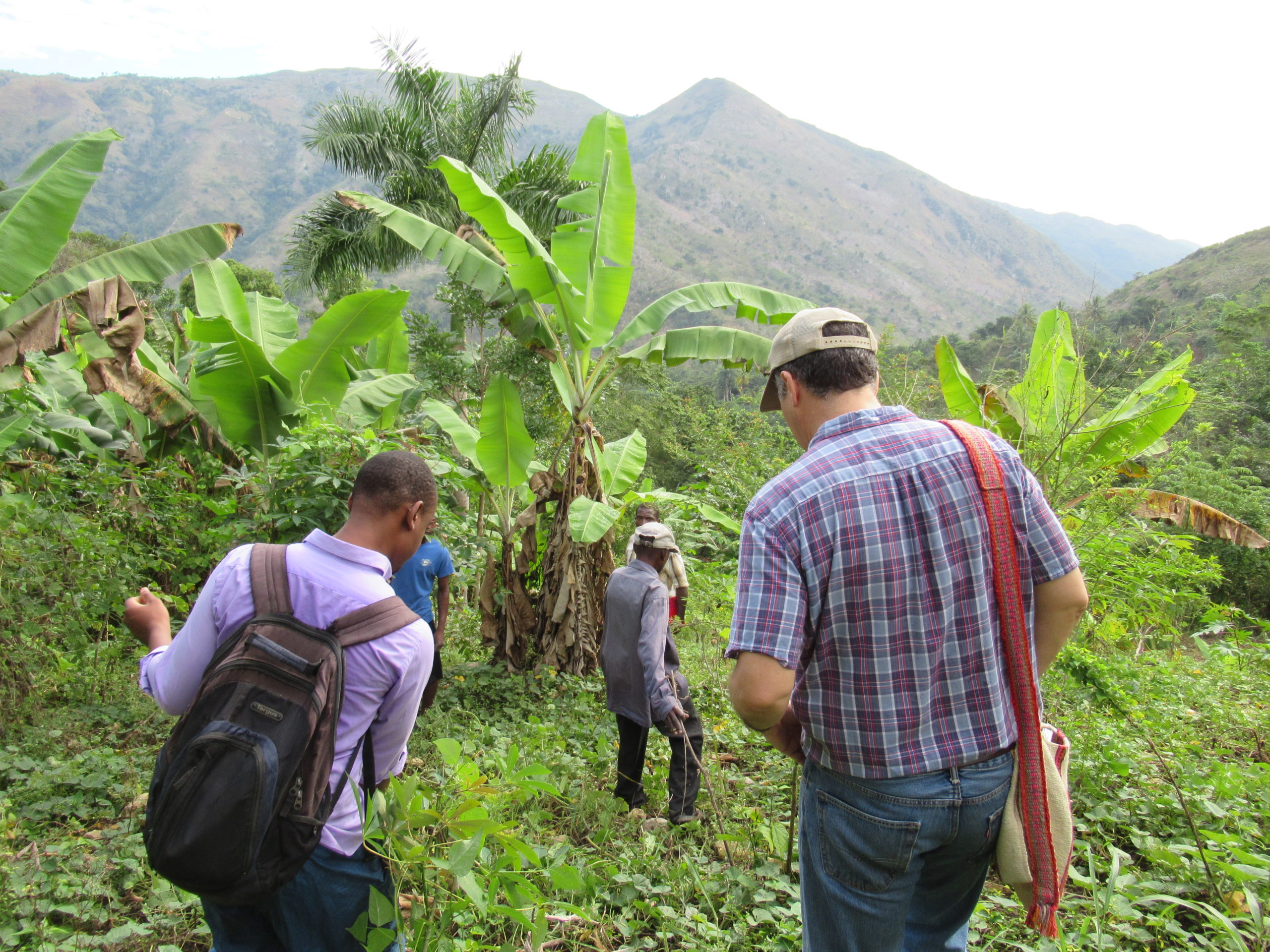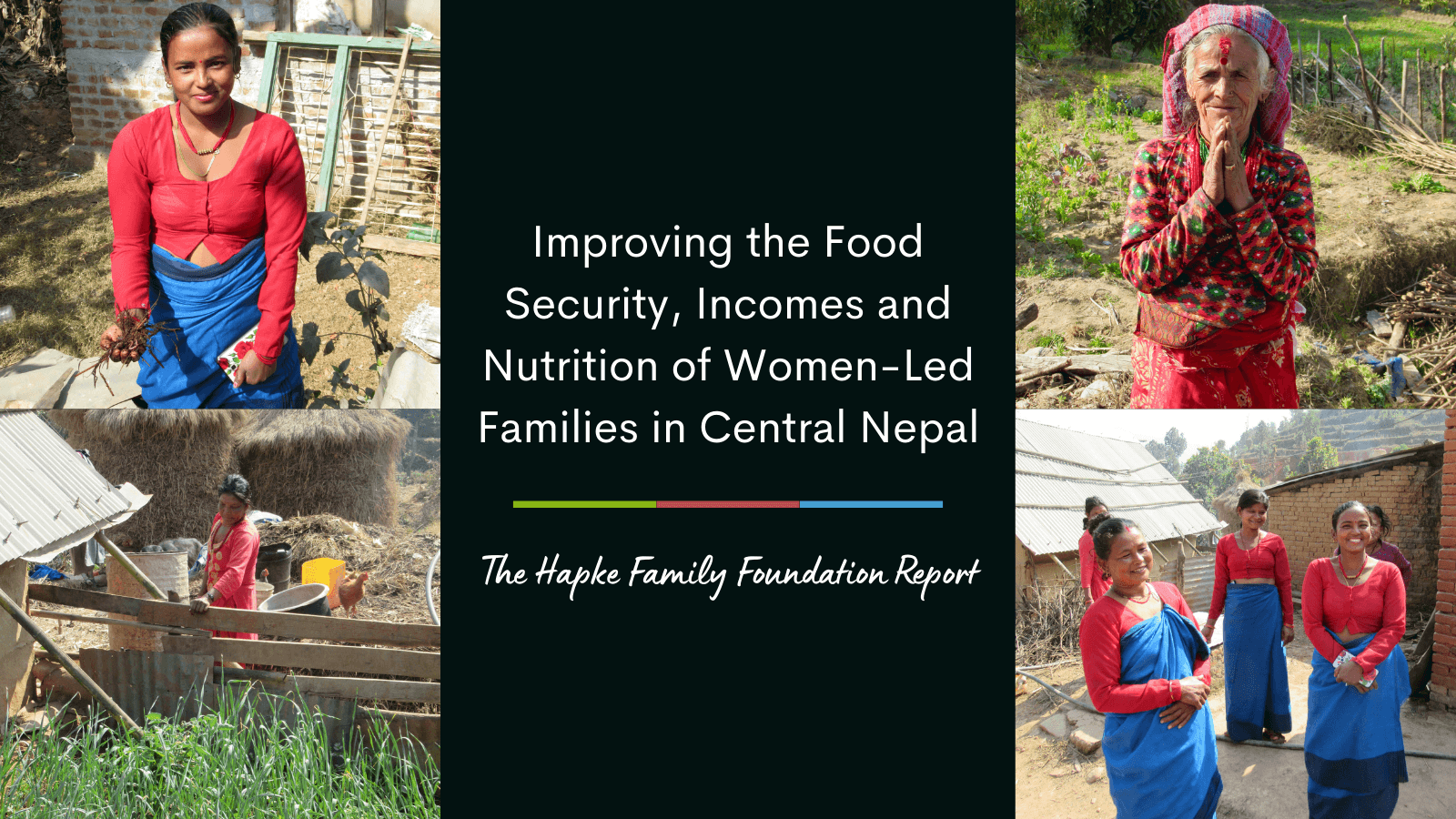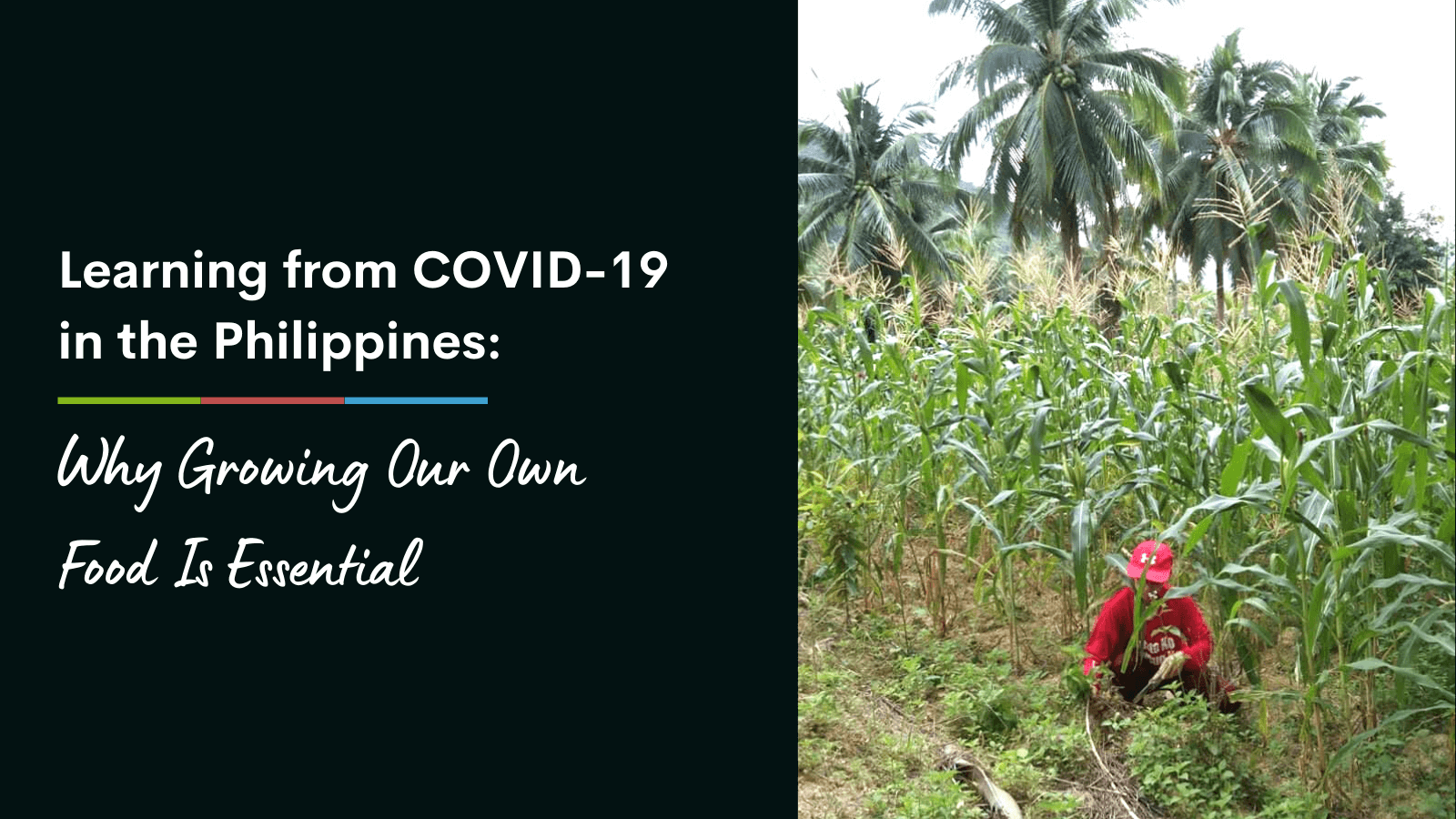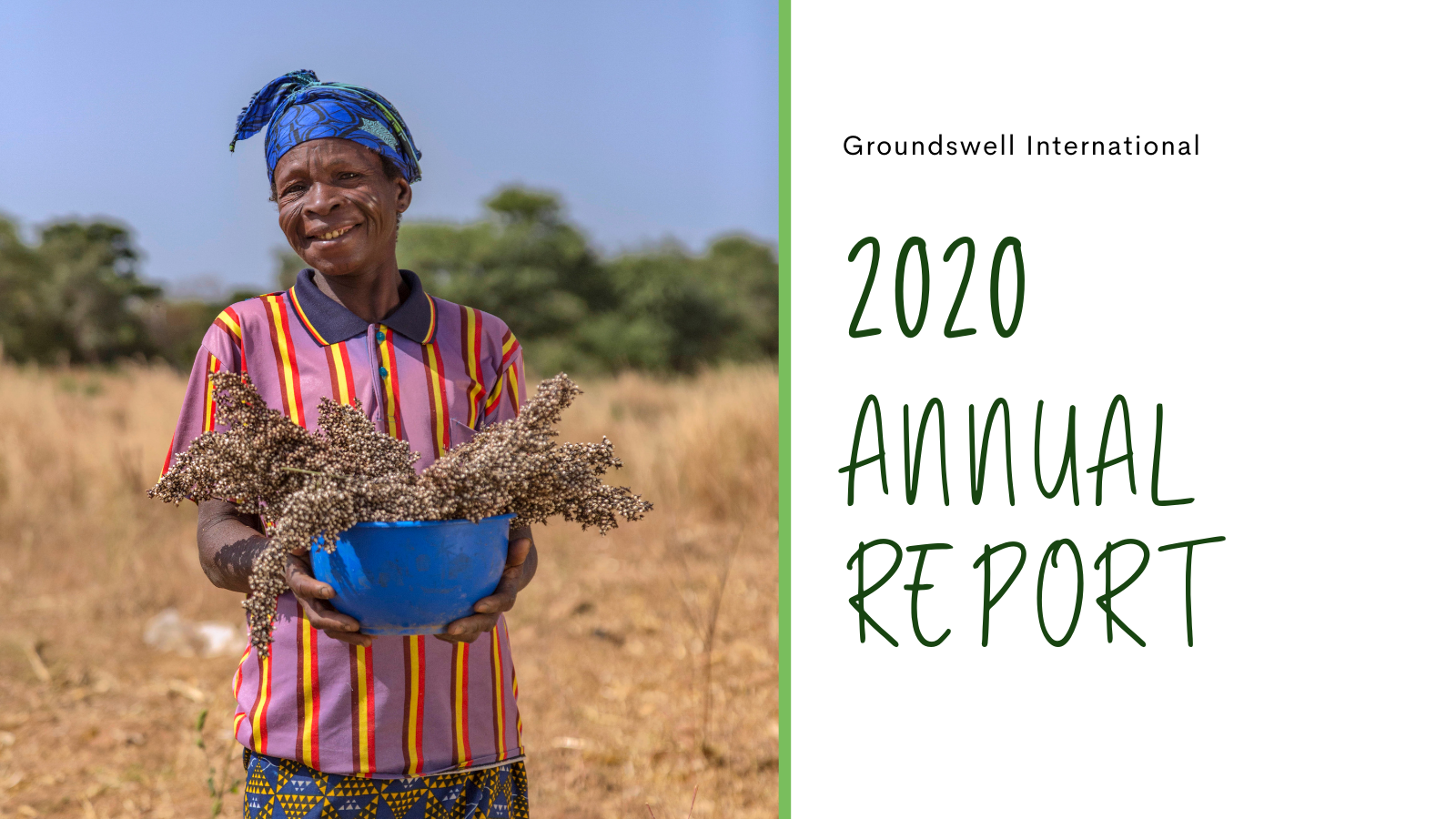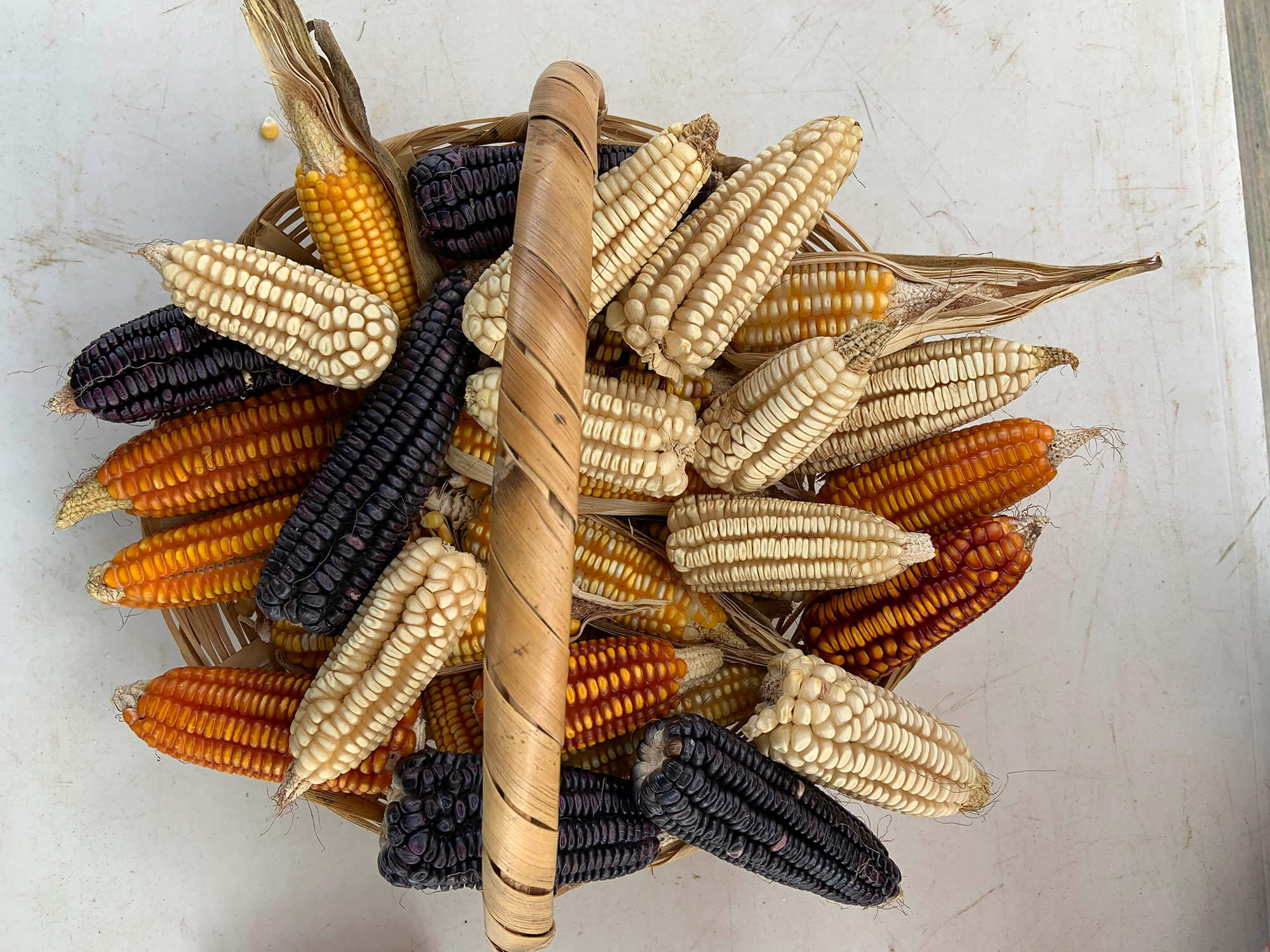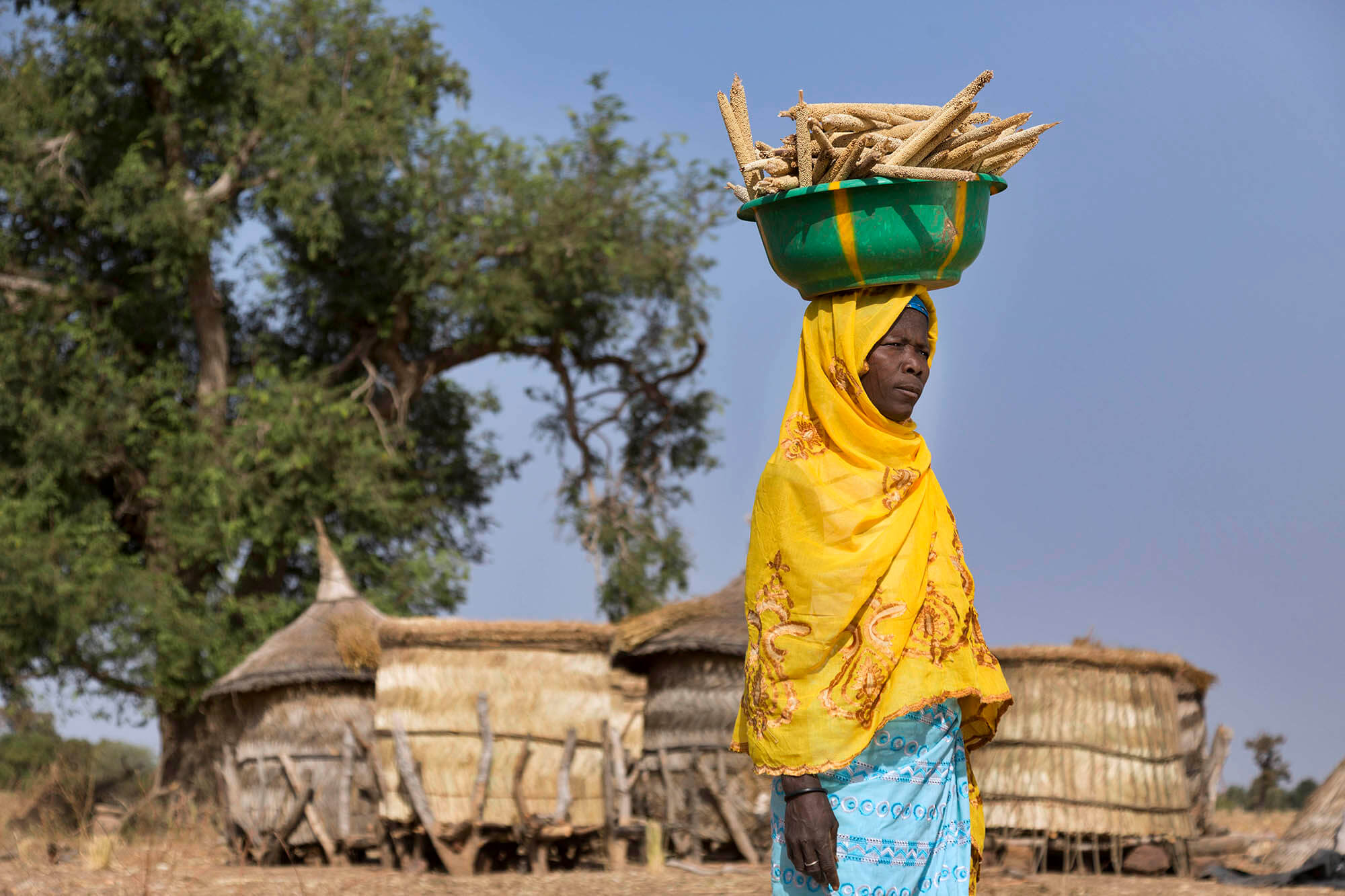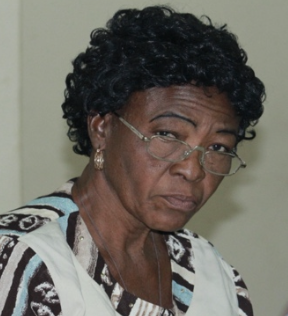BLOG
Voices from the field
Filter articles by region, topic or language:
Agroecology Americas Español Farmer Stories Groundswell News South Asia Systemic Change Traditional Farming Practices West Africa Women in Agriculture Youth in Agriculture
FEATURED STORY
Young leaders shaping the future of food systems through film: looking back on the 2024 Field to Film Festival
On December 6, we witnessed the talent, creativity, and passion of young people from different corners of the world, who invited us into realities that deserve to be seen, understood, and celebrated. Immerse yourself in their stories by watching their short films.
Youth Storytellers In Honduras: Part 1
Intro The first round of videos in our Youth Storytellers series come to us from some young change-m…
Youth Storytellers: Empowering the Next Generation
Agroecological farming and resilient local food systems are more effective and beneficial for people…
Groundswell’s 2021 Annual Report: Highlights
Each year, we release our annual report to illustrate the impact our organization and our partner or…
Report From The Field: Honduras
By: Chandi Guntupalli As Groundswell International’s newest staff member, I had the privilege of doi…
Voices From the Field: Interviews with Steve Brescia
At Groundswell International, collaboration is at the heart of what we do. We have always worked clo…
Listening to Local Voices : Storytellers Around the Globe
In the US, there is a heightened sense that the rules of our political and economic system seembroke…
Improving the Food Security, Incomes and Nutrition of Women-Led Families in Central Nepal
Groundswell International and our partner on the ground in Nepal, the Baudh Bahunipati Project Pariw…
Learning from COVID-19 in the Philippines: Why Growing Our Own Food Is Essential
By: Rene Lucero, Guest Writer Cebu is an island province in the central part of the Philippines that…
Groundswell’s 2020 Annual Report: Highlights
Each year, the annual report sums up the progress our organization has made in countries around the …
Catalyzing Resilient Seed Systems in Mexico during COVID-19
In southern Mexico, the loss of native seed varieties is a crisis undermining indigenous communities…
Improving the resilience of rural communities in the Sahel through pro-equity agroecology interventions
Vulnerability looks different across all rural communities. Pro-equity agroecology programs must tak…
In Loving Memory of Rebecca Akua Sabri
Rural Women Farmers Association of Ghana This tribute piece is a guest post from her sons, Den…

